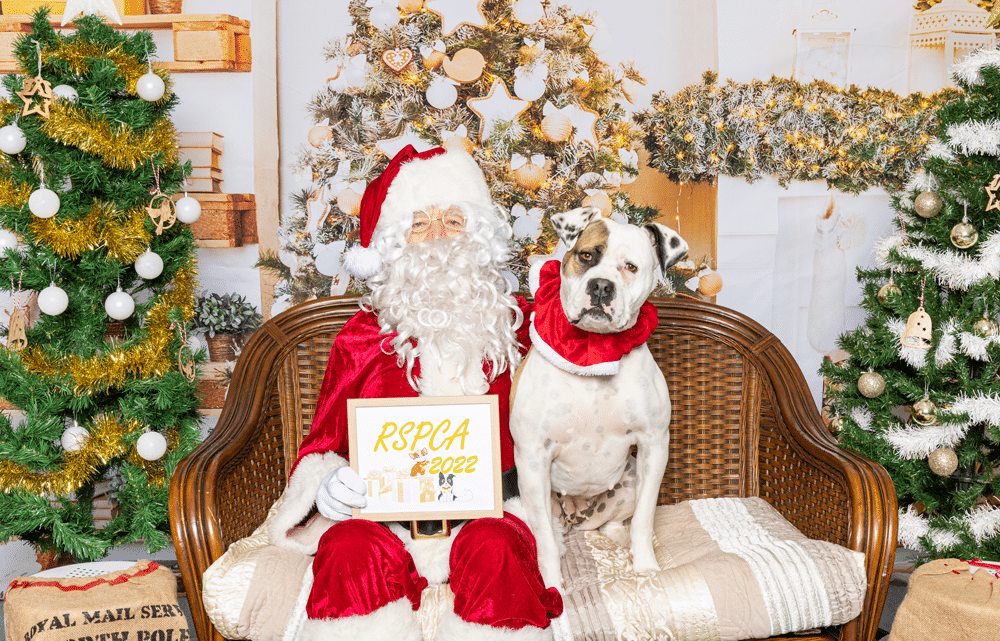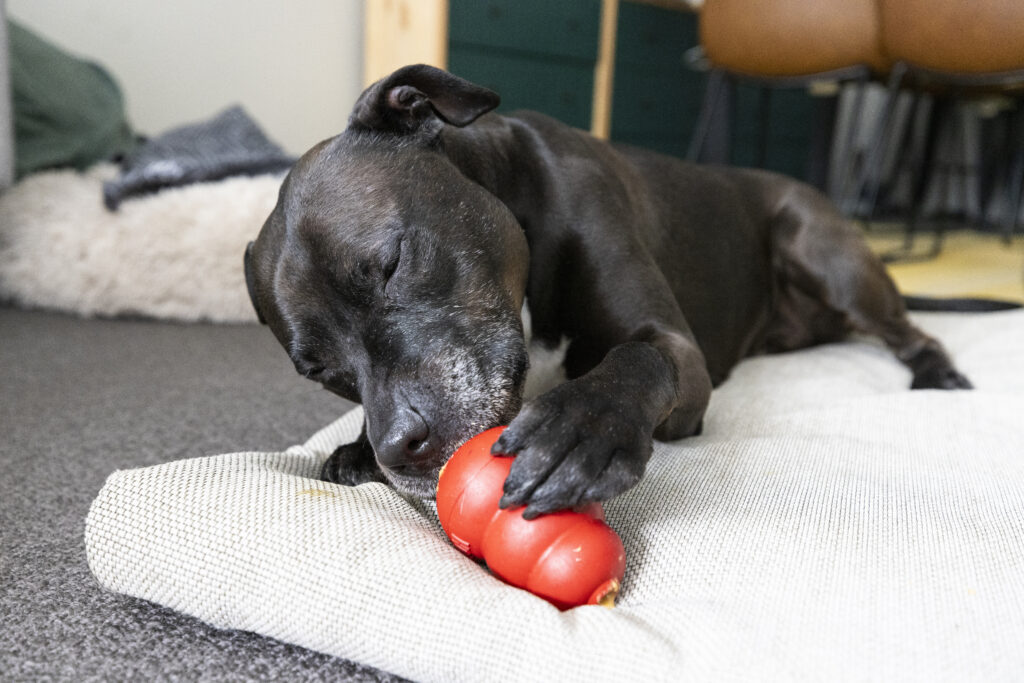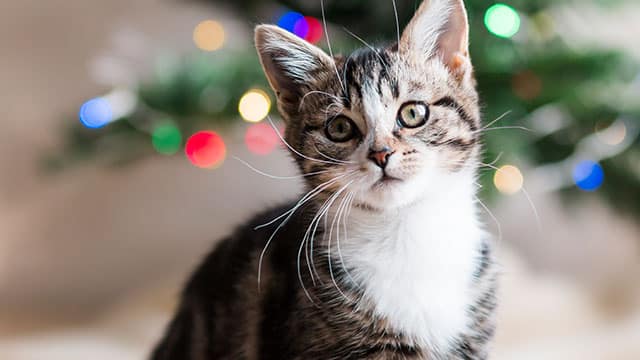Home > Information and Advice > Caring for Animals > Pet Hazards > Festive Seasons
Our festive events can introduce a range of hazardous items, food, and decoration, which is why it’s important to continue being mindful of the safety and wellbeing of our pets.
Before introducing visitors, new decorations, and harmful foods into your home, ensure you’re taking any necessary steps to reduce the risk of your pet being exposed to harmful foods and stressful situations.

Decorations and presents all pose a risk if they are consumed, including:

Keep your pet healthy and happy on Christmas Day with our suggestions:

Here are some tips for spoiling your pet in a healthy, safe way:

Christmas is a time of giving, but many human foods can cause serious illness. So resist that pleading face, and exercise caution when choosing what treats to give your pet.
Ham, turkey and other meats
Most cooked meats are okay to feed to cats and dogs in small quantities. However, do not feed your pets cooked bones as these they can easily splinter and damage their intestines and throat. Keep meat scraps free of gravy and marinades.
Sweet treats
Many sweet treats are toxic for pets, and can even be fatal. This includes:


RSPCA NSW rehomes a range of different animals, from dogs, cats, and birds to horses, rabbits, and sheep! We believe that all creatures, great and small, can bring joy to our families and homes. Begin your adoption journey today and make an adorable lifelong friend!
By providing temporary homes for our animals, we can ensure they get the care they need until they are ready to be adopted. Join our network of foster carers for an incredibly rewarding experience; with your help, we can change the lives of some of the state’s most vulnerable animals.
We rely on our generous supporters to continue assisting the thousands of animals turning to RSPCA NSW for help. No matter how small your contribution, every gift makes a lifesaving difference for animals in need.
By raising funds and lending a hand to communities and their pets, our volunteers play a pivotal role in our work throughout NSW. If you have a genuine concern for animals and enjoy meeting like-minded people, consider becoming an RSPCA NSW volunteer today!
By completing this form, you are providing personal information to RSPCA NSW (we, us, or our). We are collecting your personal information to verify your identity and sign you up to our e-newsletter to provide you with direct marketing materials. Supplying your personal information is voluntary, but it may impact our ability to provide you with some or all of our services if you do not provide it. Further details about how we manage personal information is contained in our Personal Information Collection Notice at rspcansw.org/collection-notice and Privacy Policy at rspcansw.org.au/privacy-
We promise to uphold the highest ethical standards. Your personal information has never been, and never will be sold or traded to other charities. This is our promise to you.



We acknowledge the Traditional Owners of the lands on which we live and work. We recognise and respect the enduring relationship they have with their lands and waterways, and particularly acknowledge the vital role animals have played in Indigenous life, stories and culture for tens of thousands of years.
The RSPCA is an independent, community-based charity providing animal care and protection services across the country.
This site is protected by reCAPTCHA and the Google Privacy Policy and Terms of Service apply.
The RSPCA is an independent, community-based charity providing animal care and protection services across the country.


This site is protected by reCAPTCHA and the Google Privacy Policy and Terms of Service apply.